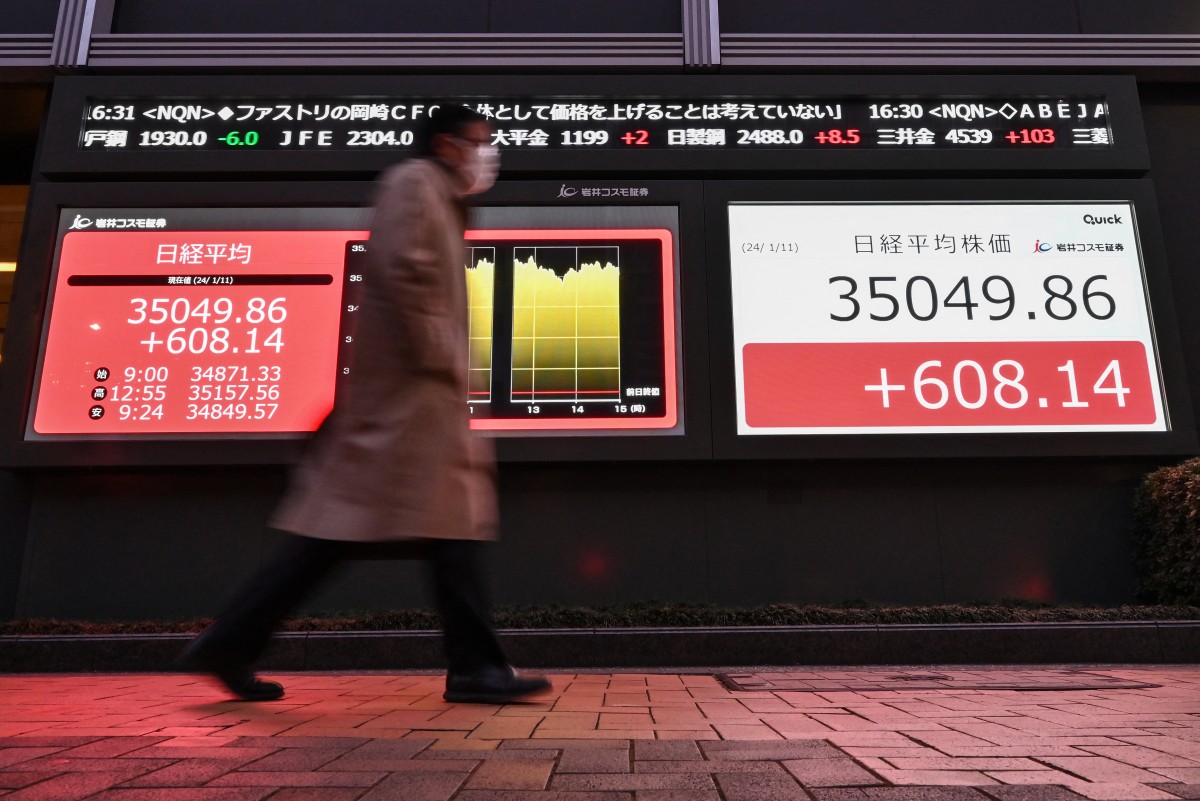London, United Kingdom – Major stock markets dropped Tuesday as hopes of early interest rate cuts this year fade and tensions mount in the Middle East.
Equities soared at the end of 2023 as falling inflation saw the Federal Reserve indicate that it was preparing to reverse more than a year of hikes to US interest rates.
Bets had been building that officials would announce a rate reduction as soon as March.
However, January has seen the wind come out of the sails with Fed officials saying they were keen to keep rates elevated for some time as inflation stays high despite recent falls.
The European Central Bank and Bank of England are also seen delaying the start of their cuts, after central banks hiked interest rates by sizeable amounts over nearly two years between late 2021 and second half of 2023.
“Part of the problem is central banks constantly teasing the prospect of rate cuts but then refusing to commit, which is causing unease among investors,” AJ Bell investment director Russ Mould noted Tuesday.
“There are plenty of signs that inflation is coming down and this is fueling the rate cut expectations on the market, yet central banks are being spectacularly stubborn.”
That has lent support to the dollar, which made strong gains Tuesday against main rivals.
Oil prices rose solidly.
While inflation is on a general downward path, there is a worry that it could pop back up anytime, particularly with tensions in the oil-rich Middle East showing no sign of calming.
The United States and Britain have in recent days launched strikes against Yemen’s Houthis in retaliation for the Iran-backed rebels’ attacks on Red Sea shipping in what they say is solidarity with Gaza.
The strikes have been met with warnings of retaliation from the group, which on Monday hit a US-owned cargo vessel with a missile, heightening fears that a region-wide conflict could erupt, battering supplies of oil and other goods.
Putting a lid on oil-price gains was demand worries as the global economy struggles.
In a slight boost, China’s Premier Li Qiang on Tuesday said his country’s economy was expected to have grown stronger than expected last year, as he addressed an annual meeting of global elites in Davos.
“Our GDP growth is expected to be around 5.2 percent, higher than the target of around five percent that we set at the beginning of last year,” Li said.

